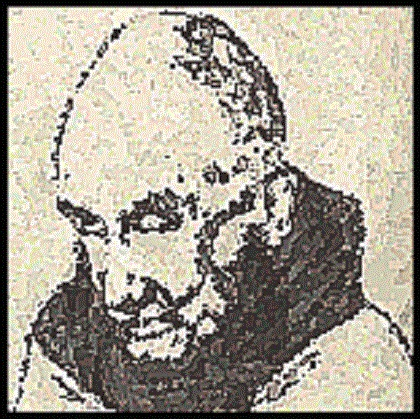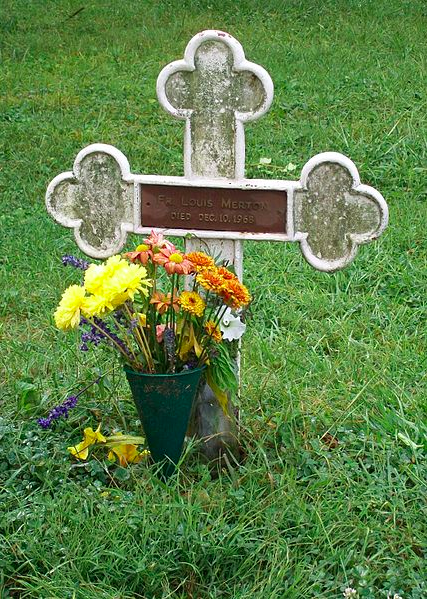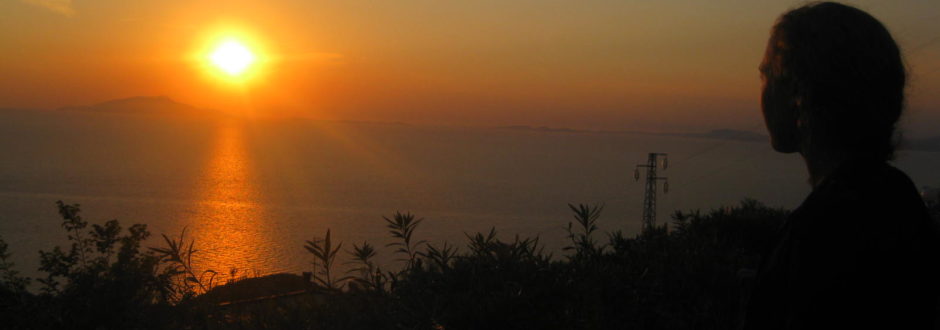“Our life, as individual persons and as members of a perplexed and struggling race, provokes us with the evidence that it must have meaning,” writes the theologian and Trappist monk Thomas Merton (1915-1968) in the introduction to No Man Is an Island (1955), a collection of sixteen essays on human spirituality:
“Part of the meaning still escapes us. Yet our purpose in life is to discover this meaning, and live according to it. We have, therefore, something to live for. The process of living, of growing up, and becoming a person, is precisely the gradually increasing awareness of what that something is.”
Indeed, the process of “becoming” can be exceedingly difficult to endure, precisely because it is just that: a process. We cannot happen upon the meaning of life or the purpose of our existence; we cannot wish it into existence; we must discover it, experience it and grow into it.
But, where should we begin?
We can start with the (slightly terrifying) realization that we must claim responsibility for our own life:
“…although men have a common destiny, each individual also has to work out his own personal salvation for himself in fear and trembling. We can help one another to find out the meaning of life, no doubt. But in the last analysis the individual person is responsible for living his own life and for ‘finding himself.’”
And accept the fact that we cannot give this responsibility to others:
“If he persists in shifting this responsibility to somebody else, he fails to find out the meaning of his own existence. You cannot tell me who I am, and I cannot tell you who you are. If you do not know your own identity, who is going to identify you? Others can give you a name or a number, but they can never tell you who you really are. That is something you yourself can only discover from within.”
But this “discovery” of ourselves might not be entirely what we think it is:
“The salvation I speak of is not merely a subjective, psychological thing – a self-realization in the order of nature. It is an objective and mystical reality – the finding of ourselves in Christ, in the Spirit, or, if you prefer, in the supernatural order. This includes and sublimates and perfects the natural self-realization which it to some extent presupposes, and usually effects, and always transcends.”

In other words, we must first “lose” ourselves:
“Therefore this discovery of ourselves is always a losing of ourselves – a death and a resurrection.”
Indeed, we must shed the illusion that we are our “true” selves:
“…we too easily assume that we are our real selves, and that our choices are really the ones we want to make when, in fact, our acts of free choice are (though morally imputable, no doubt) largely dictated by psychological compulsions, flowing from our inordinate ideas of our own importance.”
While our ego and pride would have us believe we are strong and independent beings, the reality is that:
We are “poor, limited, perplexed souls” with severe limitations and less self-sufficiency than we’d care to admit.
So, if we are to work out our salvation “in fear and trembling,” we must learn to humble ourselves:
“We must somehow strip ourselves of our greatest illusions about ourselves, frankly recognize in how many ways we are unlovable, descend into the depths of our being until we come to the basic reality that is in us, and learn to see that we are loveable after all, in spite of everything!”
And accept that we’re not that great:
“We must accept the fact that we are not what we would like to be. We must cast off our false, exterior self like the cheap and showy garment that it is.”
Which doesn’t feel so great:
“This is a difficult job. It can only really be done by a lifetime of genuine humility. But sooner or later we must distinguish between what we are not and what we are.”

But it’s necessary for our growth:
“We must find our real self, in all its elemental poverty but also in its very great and very simple dignity: created to be a child of God, and capable of loving with something of God’s own sincerity and His unselfishness.”
In conclusion:
The discovery of ourselves is, indeed, a death and a resurrection; a death of our false selves that we too readily assume to be our own, and a resurrection of our real selves found in Christ.
The paradox is not lost on Merton:
“This matter of ‘salvation’ is, when seen intuitively, a very simple thing. But when we analyze it, it turns into a complex tangle of paradoxes. We become ourselves by dying to ourselves. We gain only what we give up, and if we give up everything we gain everything.”
Surely Merton, heralded as one of the most influential American Catholic authors of the 20th century, can lend credence to the agonizing work of self-understanding.
Having spent 27 years in the Abbey of Gethsemani – a community of monks belonging to the Order of Cistercians of the Strict Observance, otherwise known as Trappists (the most ascetic Roman Catholic monastic order) – Merton’s works are replete with wisdom for those undergoing a spiritual or personal transformation.
As one of his most popular books, No Man Is an Island offers thoughtful meditations on some of his favorite topics, from silence and solitude to love and forgiveness.




Thank you so much! This compilation and summary of Merton’s thoughts and writings is beautiful!
You’re so welcome! I’m so glad you enjoyed. Thank you for reading!